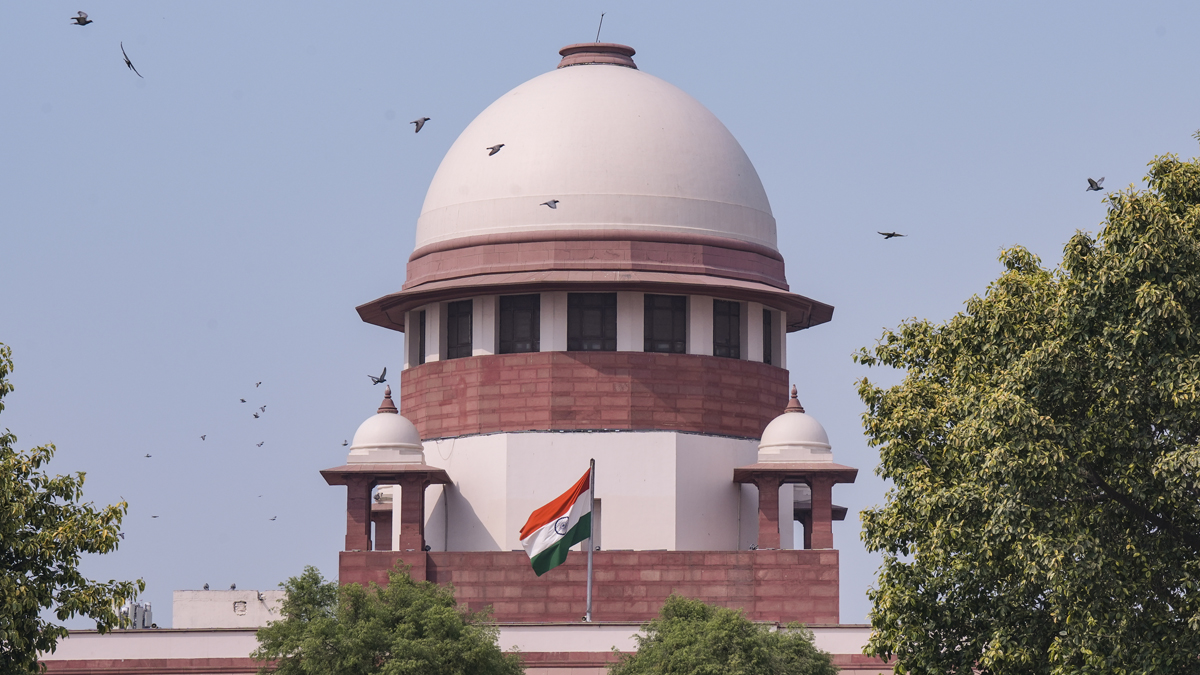Waqf Amendment Act: CJI-designate Justice B.R. Gavai-led bench to hear the case on May 15
 New Delhi: View of the Supreme Court of India, in New Delhi, Wednesday, April 16, 2025. The apex court has begun hearing on a batch of petitions challenging the constitutional validity of the Waqf (Amendment) Act, 2025. (PTI Photo/Manvender Vashist Lav)(PTI04_16_2025_RPT222B)
New Delhi: View of the Supreme Court of India, in New Delhi, Wednesday, April 16, 2025. The apex court has begun hearing on a batch of petitions challenging the constitutional validity of the Waqf (Amendment) Act, 2025. (PTI Photo/Manvender Vashist Lav)(PTI04_16_2025_RPT222B)
Chief Justice of India Sanjiv Khanna on Monday said that the petitions challenging the Waqf (Amendment) Act 2024 will be listed before a bench led by CJI-designate Justice B.R. Gavai in view of the fact that he has only few days left before his retirement on May 13.
During a brief hearing, CJI Khanna said, “The matter needs detailed hearing.”
CJI proposed that the matter be listed before a bench led by Justice BR Gavai on May 15.
"I don't want to reserve any judgment or order at the interim stage. This matter will have to be heard on a reasonably early date, and this will not be before me. If you all agree, we will post it before a bench of Justice Gavai."
The lawyers appearing for the petitioners, Senior Advocates Kapil Sibal, AM Singhvi, Rajiv Dhavan as well as Solicitor General of India Tushar Mehta, accepted CJI's suggestion.
Justice Gavai will be assuming office as the next CJI on May 14 for a six-month tenure till November.
In the last hearing, the Centre had undertaken to put on hold certain contentious provisions, after the bench raised some concerns.
The Centre has countered that the Waqf law, particularly post-2013, was exploited for land-grabbing, leading to a significant rise in Waqf properties and encroachment complaints. This prompted Parliament to introduce a new law reflecting public will.
The 2025 amendments, which eliminated the ‘Waqf-by-user’ concept, do not, according to the Government, infringe on a Muslim’s right to establish a Waqf. The amendments merely enforce registration of Waqf properties—a practice in place for nearly a century. The Centre emphasized that only those avoiding registration to evade accountability should be concerned.
The inclusion of a minority of non-Muslims in the Central Waqf Council and State Waqf Boards, the Government argued, does not violate Muslims’ religious rights. It stated that Article 26 of the Constitution does not grant an absolute right to manage property strictly according to religious principles.
In response, petitioners filed rejoinder affidavits opposing the Government’s stance and argued that the presumption of a law’s constitutionality does not preclude the Supreme Court from issuing a stay, especially when the law could cause manifest injustice and unlawfully deprive individuals of fundamental rights based on religious identity.
India